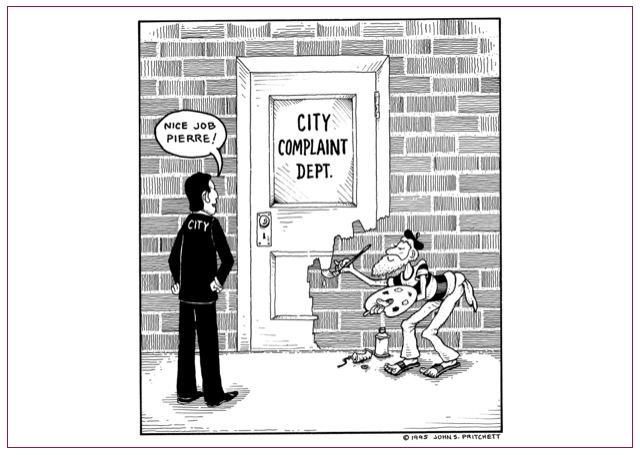CommentsACCORDING TO LIZ - This could have been the headline of one of any number of articles published in the last couple of years.
But no, this is from February 3, 2004, in a letter written by Rocky Delgadillo to the then-members of the Education and Neighborhoods Committee – Janice Hahn, Dennis Zine and Antonio Villaraigosa.
Then the City Attorney for Los Angeles, Delgadillo wrote:
“With the passage of the new City Charter in 1999, voters created a system of neighborhood councils designed to increase civic participation in Los Angeles’ municipal government. While some progress has been made, this promise of a broader and more powerful community voice has yet to fully materialize.”
He goes on to report observations from meeting with numerous neighborhood councils and dealing with myriad legal inquiries and concluded there was significant dissatisfaction in the system, much bound up with the frustration of dealing with the City’s bureaucracy and insufficient resources.
“Although the Charter established a neighborhood council system, the operating regulations were created through an administrative and legislative process.”
And then:
“The cumulative effect of these decisions and actions, aided by a broad Charter framework, may have put neighborhood councils on a path strikingly different from that envisioned by the Charter’s framers and City residents. Originally billed as a means to ‘promote more participation in government and make government more responsive to local needs,’ neighborhood councils have been hamstrung by the very system they were intended to change.
“In the case of neighborhood councils – which represent the vast geographic and cultural diversity of Los Angeles – rigid bureaucratic processes should take a back seat to local control and flexibility. The City should serve the neighborhood councils as an empowering resource, not a bureaucratic overlord.”
Delgadillo’s predecessor as City Attorney, prior to his election as Mayor in 2001, was James Hahn.
A History
During the final decades of the 20th century, San Fernando Valley, Hollywood, and San Pedro threatened to secede from Los Angeles, claiming their tax dollars were being spent anywhere but in their neighborhood and that their voices were never listened to when deals were being made at City Hall.
As Mayor, Hahn was committed to keep the City together by giving Angelenos in all areas of the City a voice through the Neighborhood Council system which was established by the new Charter in 1999, and implemented shortly before he became Mayor in May 2001.
Over eighty councils were certified in the four years Hahn was in office, and he originated a priority-based budgeting process to gather input from Neighborhood Councils for each of the City’s annual budgets to fulfill Section 909 of the City Charter– a process which continued into the first years of Eric Garcetti’s tenure.
As City Attorney during the birth of the Neighborhood Council system, Hahn issued a legal determination that Neighborhood Councils were City entities. Although this would require Neighborhood Councils to comply with the Brown Act, the logistical challenges were perceived as being mitigated by the transparency and accountability granted their stakeholders.
As legal entities under the City government framework, Neighborhood Councils gained a unique status as a grassroots arm of the Los Angeles City government.
Today
The question almost 20 years later is – are Neighborhood Councils today able to function as the Charter originally intended, to promote more participation in government and make government more responsive to local needs, or have they been hamstrung by the City and the system they were intended to change?
What do their board members believe? What about their stakeholders?
How about those entities established to help facilitate Neighborhood Council operation to increase civic participation in Los Angeles’ municipal government?
Have the Department of Neighborhood Empowerment and the Board of Neighborhood Commissioners succeeded in their mandate to empower the Neighborhood Councils?
Or have they become just part of the bureaucracy hampering board members and stakeholders to be the broader and more powerful voice promised when the Neighborhood Council system was established?
(Liz Amsden is an activist from Northeast Los Angeles with opinions on much of what goes on in our lives. She has written extensively on the City's budget and services as well as her many other interests and passions. In her real life she works on budgets for film and television where fiction can rarely be as strange as the truth of living in today's world.)















